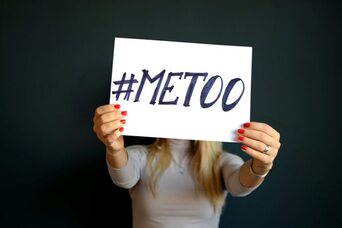|
By Linda Baker (updated March 10, 2022) Shame of sexual abuse is rooted in the long history of patriarchal societies. Patriarchal, a word taken from ancient Greek meaning “rule of the father”, is a system of governance that gives men power over women. In this system, women exist solely for men’s enjoyment, keeper of domestic affairs and barer of children. For generations women have been trained to sacrifice their needs and desires for those of their husbands and families. Without rights or privilege, women had little recourse when it came to abuse and mistreatment. While many in Western societies have come a long way from those times, the patterns and beliefs continue to be carried in our DNA.  Today we applaud the “Me Too” movement with women speaking out and demanding the end of sexual harassment and abuse, but still it doesn’t mean that they are free from the chains of the past. If we have evolved, then why are sexual attacks on teenage girls followed by cyber-bullying that results in suicide on the rise? Why is it that women who report men, especially wealthy and powerful men, are still being threatened and criticized? Why are political institutions, the military, organized religions especially the Roman Catholic Church, still protecting perpetrators and allowing such abuses to continue? Excuses such as “she was drunk,” “she wanted it,” “she was dressed in a provocative way,” or “I didn’t know her” (despite the photographs that show otherwise) victimize the victim and must be eliminated. We have recently witnessed college students who have called out their abusers, only to be threatened and humiliated. These young women are told that the career opportunities of wealthy, abusive men must be protected, while their own lives and dreams don’t matter. Even women who buy into the patriarchal belief system attack women who speak out against abusive men. What causes women of any age who have been violently attacked and raped take their own life? What must they believe to feel that they are the ones who should be punished? We can blame the outside world and while the outside world deserves that blame, change begins with the microcosm, changing belief systems from the inside out. Feelings such as “I did something to deserve this,” “I’m bad or dirty,” or “I am not worth it,” are as old as time. To heal these deep-rooted beliefs and feelings takes sensitivity and care on the part of the therapist. Healing might not begin with looking at the incident, but may have to start with healing the inner child or connecting with inner guides, outer spiritual guidance or aspects of the personality that are equipped to face and confront the situation. Often there is cellular DNA and past-life history to heal as well. Sexual abuse, including being both the victim and the perpetrator, is often passed on from generation to generation. A skilled and knowledgeable therapist can help the client to navigate through this complex web and achieve a state of true inner strength and peace, with love and respect for the self. For myself, one of the great blessings of facilitating Whole Hypnotherapy seasons with clients of abuse is the inter-generational healing that occurs. There is a feeling of profound joy when ancestors come forward with gratitude for the client as healing and release of the abusive patterns free those who have passed over to the other side. While this article was written specifically about women, I would like to note here that acts of sexual abuse and violation is also carried out against boys and men. These acts may be committed by either men or women. Linda Baker July 2021 Linda Baker is an approved Trainer of Professional Hypnotherapy certification programs.
Linda periodically offers a 2-day workshop for professionals wanting tools to help their clients heal sexual abuse and other severe trauma. Click Here to learn More. For individuals wanting private sessions, contact Linda through her website: https://www.innersourceseattle.com/
1 Comment
|
Archives
July 2024
Categories
All
|
Stay in touch - stay informed!
Enter your email in the sign-up form below to receive occasional email news from Bridges.Academy LLC.
Enter your email in the sign-up form below to receive occasional email news from Bridges.Academy LLC.
SEARCH this site: |
© Bridges.Academy LLC - All Rights Reserved

 RSS Feed
RSS Feed
